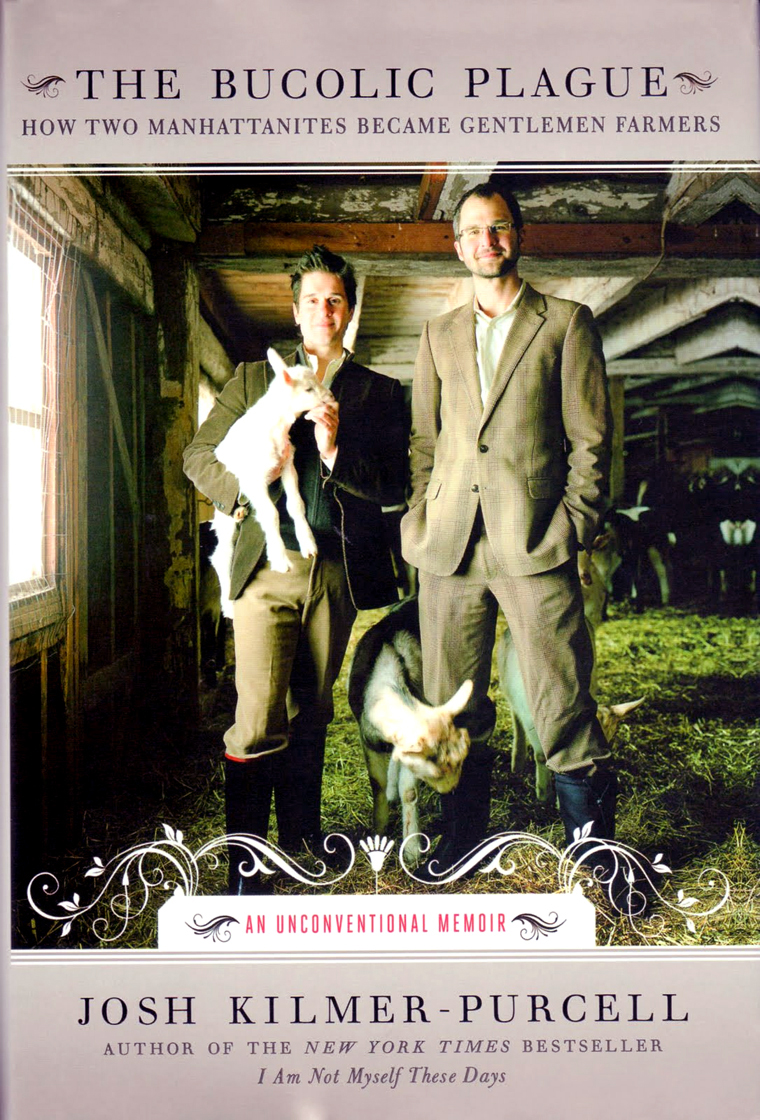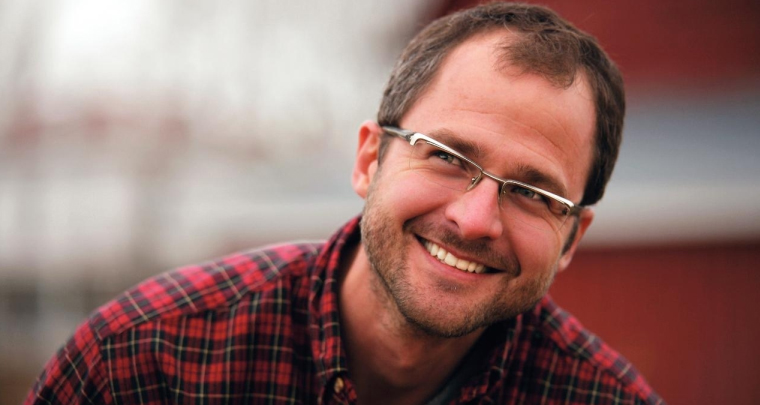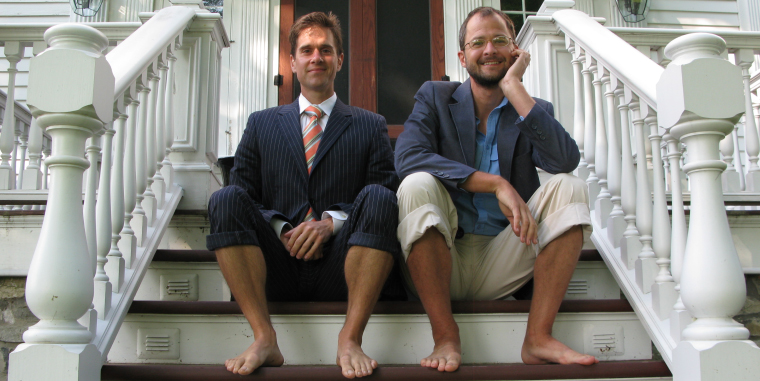The warning comes at the very beginning – at once a challenge and a disclaimer: “This book is not about living your dream. It will not inspire you. You will not be emboldened to attempt anything more than making a fresh pot of coffee.†This is the world of ‘The Bucolic Plague: How Two Manhattanites Became Gentlemen Farmers’ by Josh Kilmer-Purcell. It’s a defiant and unlikely way to start, as well as a nifty (and effective) bit of reverse psychology. Yet that’s not what draws me in – I’m instantly a fan of the self-deprecating (and at times self-lancing) style of Kilmer-Purcell’s prose. With an explosive opening salvo soaked in goat shit, the book begins with the kind of hilarious drama only a former drag queen could so gorgeously conjure, but quickly quiets down into the strange yet satisfying journey from New York City to the tiny town of Sharon Springs, NY. Along the way, a cast of colorful characters, and the steady guiding hand of his practically-perfect partner Dr. Brent Ridge, come together to illuminate the path they took on their way to becoming the Beekman Boys.
On the weekend before Halloween, I find myself sitting on the porch of the American Hotel and delving into ‘The Bucolic Plague’ while on our first trip to Sharon Springs, NY. A few doors down was the Beekman 1802 Mercantile, an impossibly charming store where all sorts of soaps and goat milk deliciousness were on display, tickling the eye and nose and belly with their rich goodness. A woman named Megan had been at the register, welcoming Andy and I to the store and to the town, and we perused the sweetly-scented surroundings before settling on some soap. The next day I returned to browse again (it turns out there really isn’t that much to do in Sharon Springs) at which point I pick up the signed copy of the book, which now rests in my hands as I rock the remainder of the day away. Another lovely lady, Maria, had been watching over the shop that day, her friendly smile and exuberant description and invitation to the then-upcoming Victorian Stroll was infectious – it seems in Sharon Springs everyone is instantly a friend, and I wonder why it can’t be like that everywhere.
Back on the porch, I am already fifty pages into the book when I realize it is dinner time. Such is the spell cast by an intoxicating writer. I will finish the book quickly in a few sittings, enthralled by the journey of thee two gentlemen. It is a nifty keepsake from our weekend in Sharon Springs, but far more than that it is an inspiration. Just as Oprah Winfrey and Martha Stewart wield their power over a nation of people striving for their ‘Best Life’, so too do the Beekman Boys hold sway over those of us misfits just looking for little ways to make our lives better. Oddly enough, the book succeeds most in doing exactly what Kilmer-Purcell purports it won’t do, in the form of motivating and inspiring. Their story, beneath the surface, may not be the slice of super-successful perfection that we demand from our public figures, but because of that it’s more relatable, and the home-grown jewels they’ve produced are more precious.
While the procurement and running of the Beekman Farm and Mansion provide the narrative drive of ‘The Bucolic Plague’, it’s the relationship between Josh and Brent that forms the underlying foundation to the proceedings. Never heavy-handed or over-wrought with anything other than brutal honesty, it is tinged with a keen sensitivity to the trials and tribulations of any long-term couple. The book shifts on the dynamics between the two men – tense here, hopeful there – evolving and revolving around what it takes to stay in love, what it takes to pursue your dreams, and what it takes to try for both.
The best part may be that there is no definitive happy ending – and so their journey continues, luckily enough to be documented on The Fabulous Beekman Boys (on the Cooking Channel) as well as their (as of this writing) ongoing success on The Amazing Race (a show only the Beekman Boys could get me to sit through, and one that turns out to be highly addictive – a good-enough reason why I don’t usually watch TV.) More than that though, and no matter how things go at the Beekman Mansion, this book is a badly-needed reminder of what it means to inhabit this world, how we must help each other, how the things we once thought mattered change and become something else. It is a gorgeously rendered literary bouquet, as transitory and fleeting in its beauty as it is resonant and lasting in its spirit.
Near the end comes the beginning ~ of understanding, and of all the things that brought them to purchase the Beekman mansion: “Because we’re vain, kindhearted, ambitious, shallow, deep, humble, trendy, old-fashioned, rich, poor, proud, and vulnerable. Those are merely the beginnings of the reasons we bought the Beekman.â€
We want so much for things to be perfect, for our lives to be exactly as those idealized on the covers of magazines and the eponymous talk-shows of lifestyle gurus, but that’s not the way most of us can live. The best we can hope for – and the greatest we can achieve – is happiness. The love of another person. The joy of another Spring. The bloom of another flower. Nothing is ever perfect ~ and why would we want it to be?
Back to Blog


